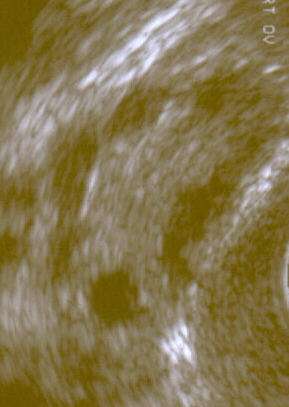February 23, 2016 report
Transplanting brown adipose tissue into rats found to reduce symptoms of polycystic ovary syndrome

(Medical Xpress)—A team of researchers from a variety of institutions in China has found via experimentation, that transplanting brown adipose tissue (BAT) into female rats with polycystic ovary syndrome (PCOS) led to a reduction in symptoms. In their paper published in Proceedings of the National Academy of Sciences, the team describes why they tried the approach, what they found, and their plans for testing the same sorts of treatment in humans.
PCOS is one of the leading causes of infertility in women, adversely impacting approximately 9 to 18 percent of all reproductive age women—scientists still do not know what causes it but do know that its hallmark is ovarian cysts, irregular ovulation, heighted levels of androgens and an increased risk of developing type II diabetes. There is currently no cure for the syndrome, nor even treatment, but because it shares features with metabolic syndrome, such as insulin resistance, the researchers wondered if BAT might be involved—known more commonly as brown fat, such tissue is responsible for generating heat and for keeping the body warm in general. They decided to find out what would happen if they transplanted BAT from a non-PCOS rat into a BAT area in a PCOS rat.
They found that doing so caused an immediate positive change—BAT activity in the PCOS rats picked up, which led to an increase in the secretion of adiponectin (an adipokine that plays a role in metabolism) and that in turn led to a reduction in symptoms. Inspired by the findings, the researchers also tried injecting adipokine directly into BAT areas in PCOS mice and found nearly the same results. This is the first time, the team notes, that increasing BAT activity in PCOS patients has been shown to alleviate symptoms. Interestingly, they also note that because of the role that BAT plays in metabolism, it is possible that similar transplants might help alleviate symptoms of other metabolic diseases or even offer a way to treat obesity.
The researchers note that while their findings are promising, it is still not clear if the same types of procedures would work on humans—they plan to conduct clinical trials as soon as possible to find out.
More information: Xiaoxue Yuan et al. Brown adipose tissue transplantation ameliorates polycystic ovary syndrome, Proceedings of the National Academy of Sciences (2016). DOI: 10.1073/pnas.1523236113
Abstract
Polycystic ovary syndrome (PCOS), which is characterized by anovulation, hyperandrogenism, and polycystic ovaries, is a complex endocrinopathy. Because the cause of PCOS at the molecular level is largely unknown, there is no cure or specific treatment for PCOS. Here, we show that transplantation of brown adipose tissue (BAT) reversed anovulation, hyperandrogenism, and polycystic ovaries in a dehydroepiandrosterone (DHEA)-induced PCOS rat. BAT transplantation into a PCOS rat significantly stabilized menstrual irregularity and improved systemic insulin sensitivity up to a normal level, which was not shown in a sham-operated or muscle-transplanted PCOS rat. Moreover, BAT transplantation, not sham operation or muscle transplantation, surprisingly improved fertility in PCOS rats. Interestingly, BAT transplantation activated endogenous BAT and thereby increased the circulating level of adiponectin, which plays a prominent role in whole-body energy metabolism and ovarian physiology. Consistent with BAT transplantation, administration of adiponectin protein dramatically rescued DHEA-induced PCOS phenotypes. These results highlight that endogenous BAT activity is closely related to the development of PCOS phenotypes and that BAT activation might be a promising therapeutic option for the treatment of PCOS.
© 2016 Medical Xpress

















